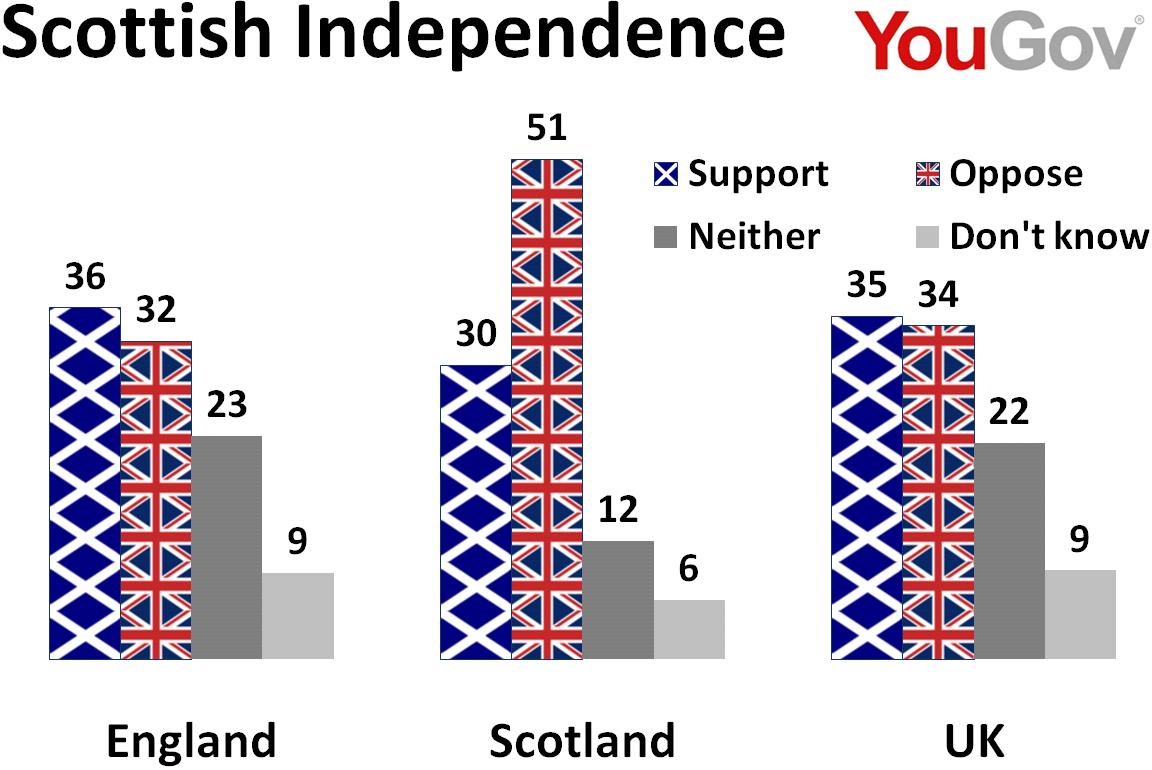Cue the Union Jack and bring on the Jerusalem – it’s been one heck of a summer for British nationalism. With the Queen’s Diamond Jubilee kicking off the summer and the Olympic glow still lingering, patriotism has been at an all time high. Yet, behind this united front of cohesion and cookie-cutter images of happy Brits, the union may just be approaching one of its most tenuous times.
In just over a year from now Scots (though even who qualifies for this has been a matter of debate) will vote to further clarify their position within the United Kingdom. While it is still up in the air as to whether there will be just one question—a simple vote of independence versus the status quo, as the Scottish National Party has been pushing hardest for—or an additional question calling for more powers to be devolved to the current Scottish Parliament, both sides of the vote have already begun to canvass Scotland.
Yes Scotland
Pushing the Yes campaign, and indeed the referendum itself, has been the Scottish National Party, led by Alex Salmond. Promoting an independent Scotland as a wealthy energy state fueled by vast North Sea oil reserves and ever growing renewable energy reserves, the SNP is pushing an image of Scotland as an economically sound, small, and independent state closer to her Scandinavian neighbors to the east than to post-empire England to the south.
Chief among the pro-independence arguments is the belief that independence will see more revenues from Scotland’s oil reserves flowing into the Scottish economy. Arguing that by keeping these revenues north of the border Scotland will be able to continue to fund its relatively more lavish social safety net, the Yes Scotland campaign has been seizing upon the Westminster-imposed austerity as a perfect opportunity to promote the idea that Scots’ interests are widely divergent from those of the remainder of the United Kingdom.
Better Together
Rejecting these arguments—and promoting an image more in line with this summer’s unionist sentiments—is the Better Together campaign. In contrast to the Yes campaign’s rhetoric of independent prosperity, the Better Together campaign is resting its case upon the stability of economic interdependence and long-formed cultural ties. Presenting Scotland’s currently devolved powers as a perfect compromise between the benefits of self-government and the stability of remaining attached to a global power, the No campaign has built a message of partnership, sidestepping the issue of English dominance within the U.K. entirely.
Moreover, the No campaign has placed an emphasis on the uncertainty that a Yes vote could cause. As former Labour chancellor Alistair Darling emphasized when launching the campaign, “We can’t give our children a one-way ticket to a deeply uncertain destination.”
What next?
Currently, support for independence has been hovering around 30%, while support for the status quo stands at about 50%. This represents a modest decline in support since last August, when support for full independence stood about 9% higher. Whether this is a lasting drop in support for divorce or simply a momentary blip of separation anxiety caused by this summer’s pomp and circumstance is yet to be seen.
What’s becoming clearer, however, is that achieving political separation could come quite a bit more easily than dividing Scots from their British identity. As Mr. Salmond discovered recently in urging his countryman to support their fellow “Scolympians,” prying the Union Jack away from Scots might be harder than initially thought. Receiving quite a bit of criticism and a noticeable lack of support from the athletes themselves, it appears that the potential for independent Olympic teams for Scotland and Britain will not feature prominently in the Yes campaign. This does not bode well for the Yes Scotland campaign.
With only two years left to convince Scots that their identity—and their nation—should stand independent, the Yes Scotland campaign certainly has an uphill battle. Though this job will certainly be easier as the summer’s parade of patriotism winds down, any boost in support for independence will surely be tempered by growing anxiety about going it alone in increasingly uncertain economic weather. Coupled with doubts about the longevity of Scotland’s oil production, it appears that for the time being the smart money in this race is placed firmly behind maintaining the Union.
